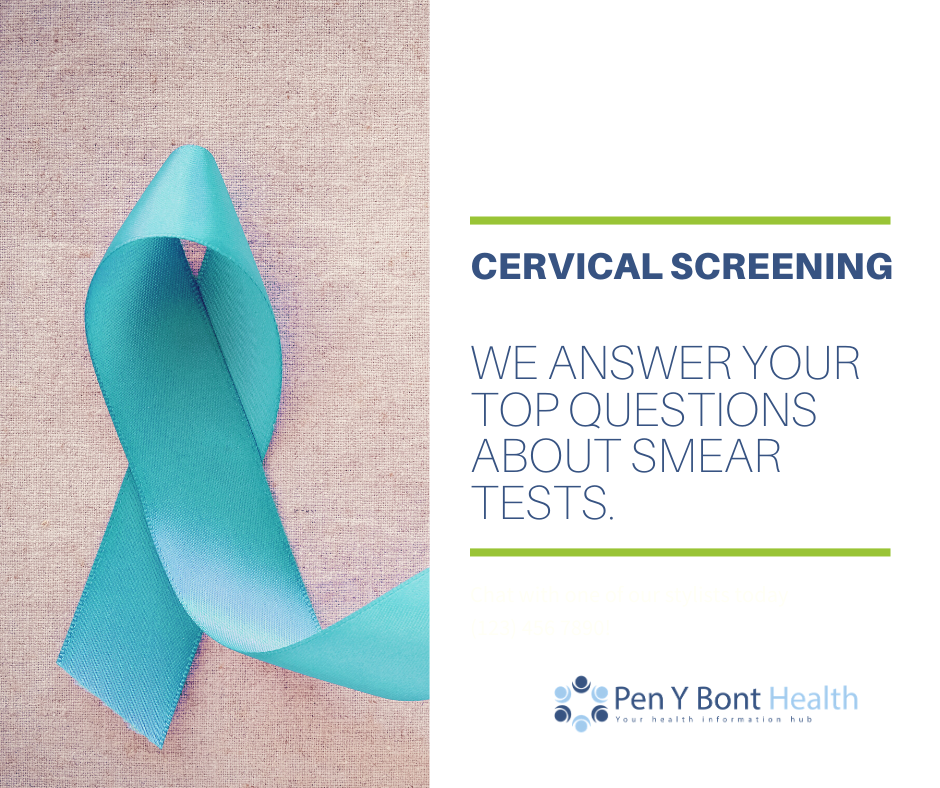 As we start a new decade, it is inevitably a time when we look back at the previous 10 years.
As we start a new decade, it is inevitably a time when we look back at the previous 10 years.
It was 10 years ago that Cervical Cancer was thrust into the media spotlight when Jade Goody (a contestant who became a celebrity after taking part in Big Brother) died at the young age of 27.
When Jade died of Cervical Cancer the awareness of how important regular smear tests are became apparent leading to an increase in cervical screenings. 10 years on and it is reported that the ‘Jade Goody effect’ has now worn off, with around 1 in 4 women not attending their tests. Described by doctors as one of the most misunderstood cancers, cervical cancer kills two people every day in England. It is also estimated that if everyone attended their screenings 83% of cases could be prevented.[source]
So to encourage you to attend your cervical screening appointments, PYB Health has put together a list of commonly asked questions and answers about smear tests.
Q.1. What do smear tests detect?
A. A smear test is also called a cervical screening Smear tests are a way to prevent cancer & not a test for cancer. The cervical screening (smear test) is a health check for your cervix and a way to detect if there are any changes to the cells in your cervix. The cervix is the opening to your womb from your vagina.
Q.2. Do I need a smear test?
A. If you are female (have a cervix) and are aged between 25 & 64 then it is strongly advised that you should have a smear test to help prevent cancer.
Q.3. How do I book a smear test?
A. All women and people with a cervix aged 25 to 64 should be invited by letter to attend a screening at their local GP surgery. If you have never received a letter or think your screening is overdue you can call your local surgery, check your records or request an appointment. It is best to book an appointment when you are not on your period. Also try to avoid the 2 days before or after you bleed.
Q.4. What happens at your appointment?
A. During the screening appointment, a small sample of cells will be taken from your cervix. The whole appointment will take about 10 minutes and the test will usually take less than 5 minutes. You will usually be seen by a female nurse or doctor.
Watch this useful video to find out more.
Q.5. Do smear tests hurt?
A. The speculum (the instrument used in the test) does feel a bit weird and the removal of cells for the test is likely to be uncomfortable for a few seconds but it should not feel painful.
Q.6. How often should you have a smear test?
A. Between the ages of 25 and 49 you should have a cervical screening every three years.
Between the ages of 50 and 64 you will be invited for a screening every five years.
Q.7. How do you prepare for a smear test?
A. For 48 hours before your test avoid using any vaginal medications, lubricants or creams as they can affect the results. You may feel more comfortable wearing a skirt to your appointment so that you only need to remove your pants.
Q.8. What happens after the smear test?
A. The sample is tested for changes to the cells of your cervix. Finding abnormal changes early means they can be monitored or treated so they do not get a chance to turn into cervical cancer. You’ll get your results by letter, usually in about 2 weeks.
